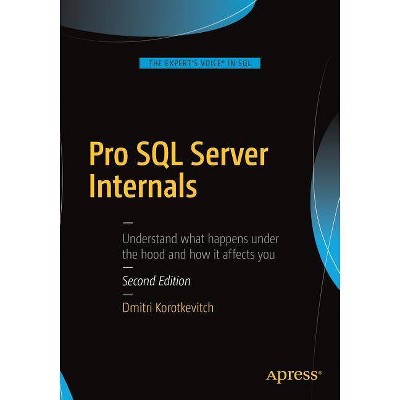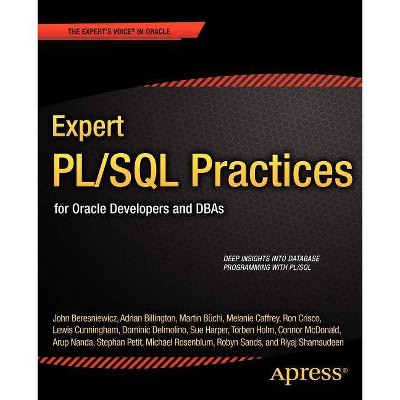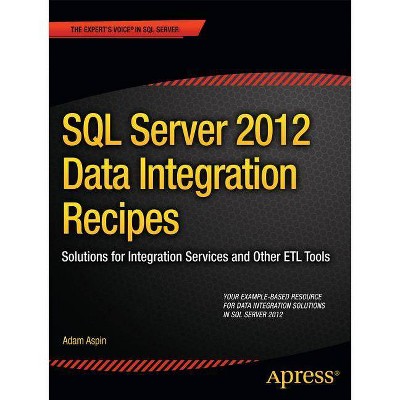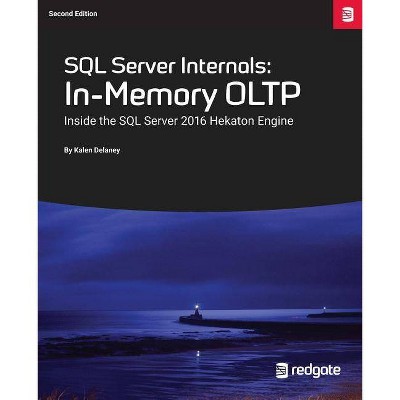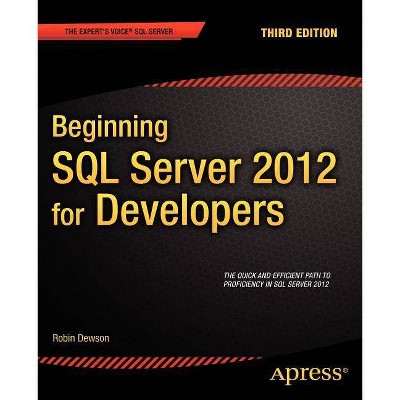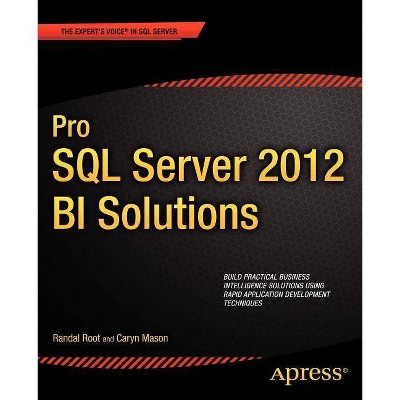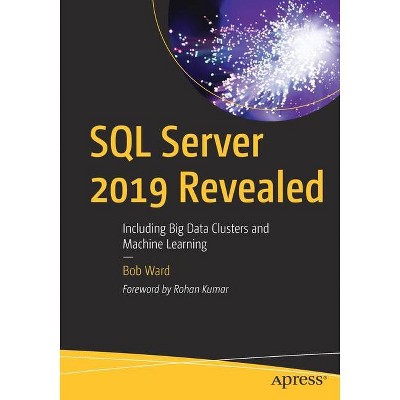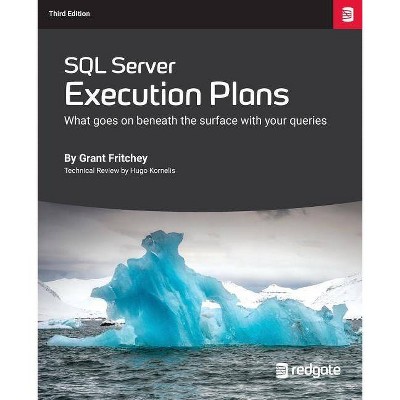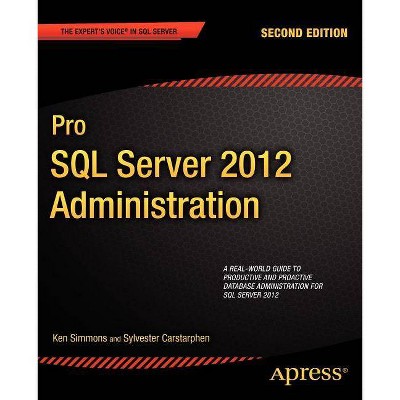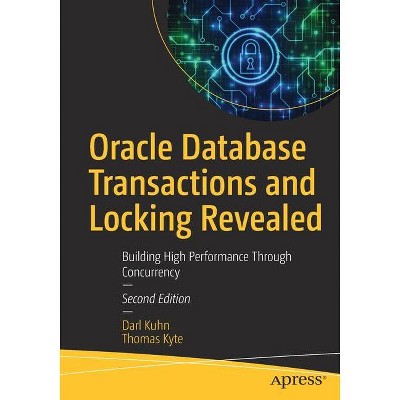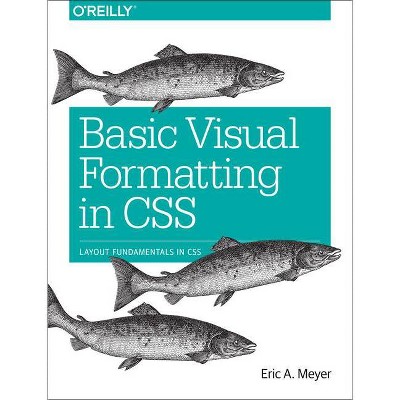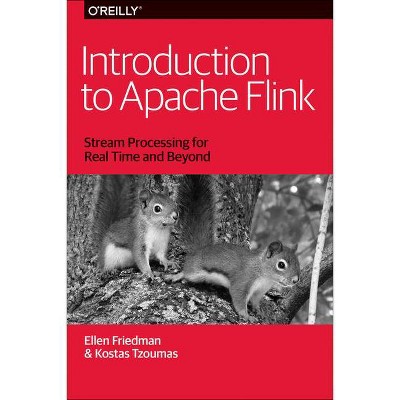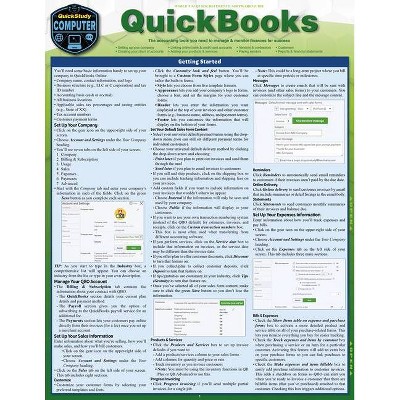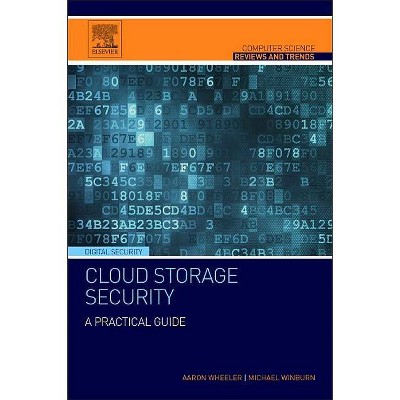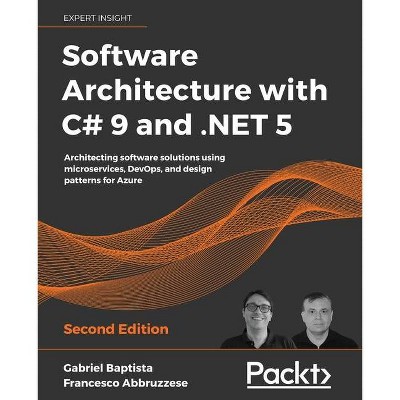Expert SQL Server Transactions and Locking - by Dmitri Korotkevitch (Paperback)
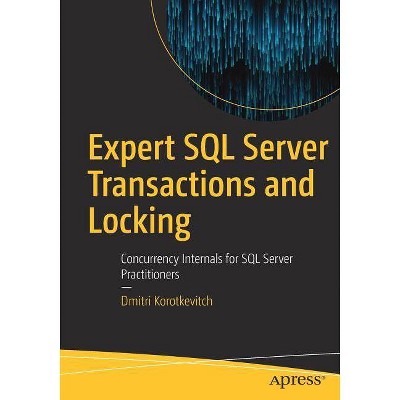
Similar Products
Products of same category from the store
AllProduct info
<p/><br></br><p><b> About the Book </b></p></br></br>Tagline: Building high-throughput systems with transactional consistency<p/><br></br><p><b> Book Synopsis </b></p></br></br>Master SQL Server's Concurrency Model so you can implement high-throughput systems that deliver transactional consistency to your application customers. This book explains how to troubleshoot and address blocking problems and deadlocks, and write code and design database schemas to minimize concurrency issues in the systems you develop.<br>SQL Server's Concurrency Model is one of the least understood parts of the SQL Server Database Engine. Almost every SQL Server system experiences hard-to-explain concurrency and blocking issues, and it can be extremely confusing to solve those issues without a base of knowledge in the internals of the Engine. While confusing from the outside, the SQL Server Concurrency Model is based on several well-defined principles that are covered in this book.<br>Understanding the internals surrounding SQL Server's Concurrency Model helps you build high-throughput systems in multi-user environments. This book guides you through the Concurrency Model and elaborates how SQL Server supports transactional consistency in the databases. The book covers all versions of SQL Server, including Microsoft Azure SQL Database, and it includes coverage of new technologies such as In-Memory OLTP and Columnstore Indexes. <p/><b>What You'll Learn</b><ul><li>Know how transaction isolation levels affect locking behavior and concurrency<br></li><li>Troubleshoot and address blocking issues and deadlocks<br></li><li>Provide required data consistency while minimizing concurrency issues<br></li><li>Design efficient transaction strategies that lead to scalable code<br></li><li>Reduce concurrency problems through good schema design<br></li><li>Understand concurrency models for In-Memory OLTP and Columnstore Indexes<br></li><li>Reduce blocking during index maintenance, batch data load, and similar tasks<br></li></ul><b><br></b><b>Who This Book Is For</b><br>SQL Server developers, database administrators, and application architects who are developing highly-concurrent applications. The book is for anyone interested in the technical aspects of creating and troubleshooting high-throughput systems that respond swiftly to user requests.<br><p></p><p/><br></br><p><b> From the Back Cover </b></p></br></br>Master SQL Server's Concurrency Model so you can implement high-throughput systems that deliver transactional consistency to your application customers. This book explains how to troubleshoot and address blocking problems and deadlocks, and write code and design database schemas to minimize concurrency issues in the systems you develop.<br>SQL Server's Concurrency Model is one of the least understood parts of the SQL Server Database Engine. Almost every SQL Server system experiences hard-to-explain concurrency and blocking issues, and it can be extremely confusing to solve those issues without a base of knowledge in the internals of the Engine. While confusing from the outside, the SQL Server Concurrency Model is based on several well-defined principles that are covered in this book.<br>Understanding the internals surrounding SQL Server's Concurrency Model helps you build high-throughput systems in multi-user environments. This book guides you through the Concurrency Model and elaborates how SQL Server supports transactional consistency in the databases. The book covers all versions of SQL Server, including Microsoft Azure SQL Database, and it includes coverage of new technologies such as In-Memory OLTP and Columnstore Indexes.<br>What You'll Learn: <br><ul><li>Know how transaction isolation levels affect locking behavior and concurrency<br></li><li>Troubleshoot and address blocking issues and deadlocks<br></li><li>Provide required data consistency while minimizing concurrency issues<br></li><li>Design efficient transaction strategies that lead to scalable code<br></li><li>Reduce concurrency problems through good schema design<br></li><li>Understand concurrency models for In-Memory OLTP and Columnstore Indexes<br></li><li>Reduce blocking during index maintenance, batch data load, and similar tasks</li></ul><p/><br></br><p><b> About the Author </b></p></br></br><b>Dmitri Korotkevitch </b>is a Microsoft Data Platform MVP and Microsoft Certified Master (SQL Server 2008) with many years of IT experience, including years of experience working with Microsoft SQL Server as Application and Database Developer, Database Administrator, and Database Architect. He specializes in the design, development, and performance tuning of complex OLTP systems that handle thousands of transactions per second around the clock. Currently, he works as Director of Database Services at Chewy.com and he provides SQL Server consulting services and training to clients around the world. Dmitri regularly speaks at various Microsoft and SQL PASS events.
Price History
Price Archive shows prices from various stores, lets you see history and find the cheapest. There is no actual sale on the website. For all support, inquiry and suggestion messagescommunication@pricearchive.us
